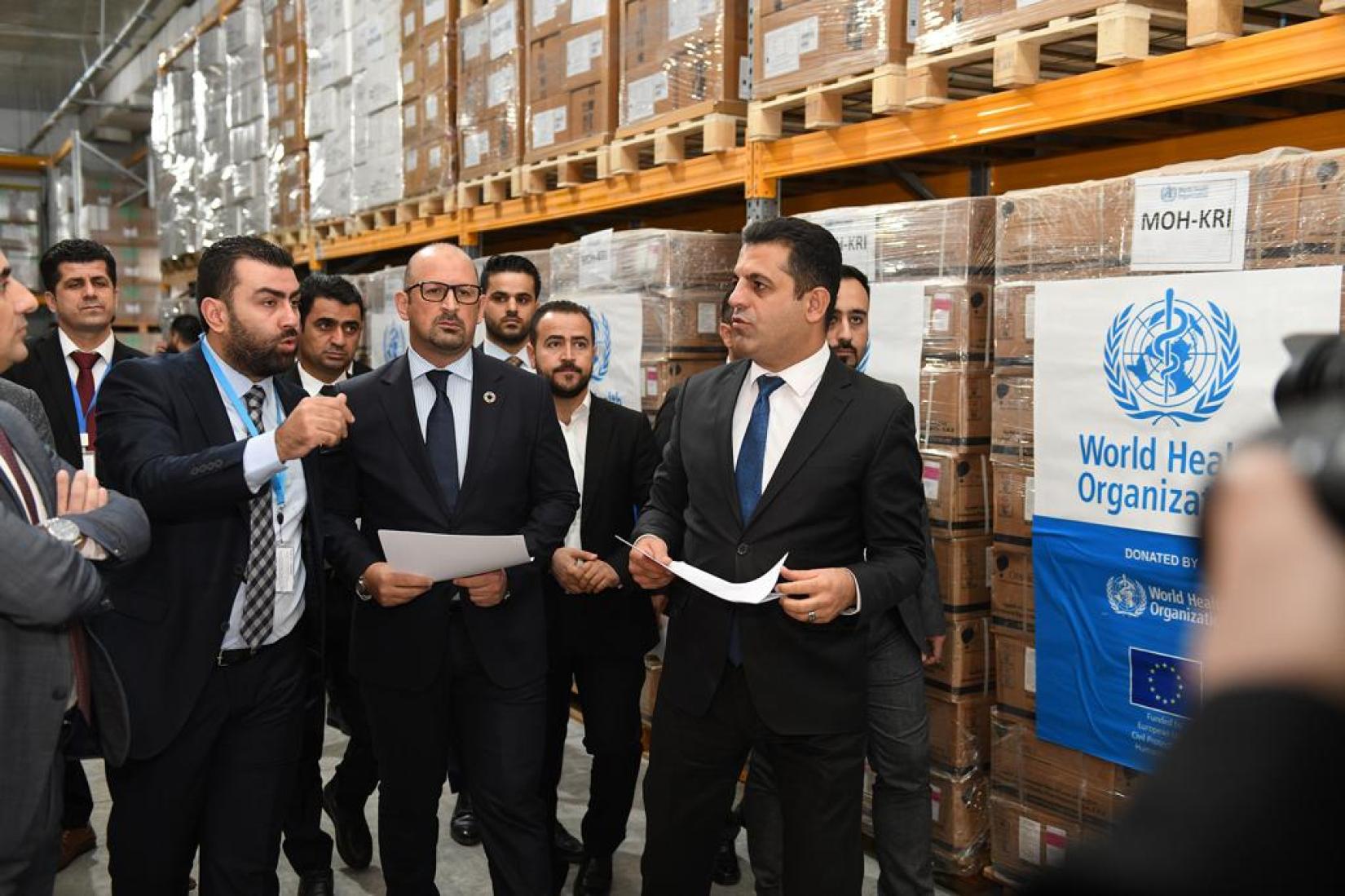Building health system resilience in Iraq: Investing in the management of pharmaceuticals and biomedical technologies
30 September 2022
Erbil, 29 September 2022 – The World Health Organization (WHO) in Iraq, in partnership with the Ministry of Health in the Kurdistan region, opened new WHO warehouses located within the Kurdistan Ministry of Health storage area in the Erbil governorate.

The inauguration marks the initial phase of a major transition from direct service provision to building resilience in the health sector and strengthening health systems, including the investment in the management of pharmaceuticals and biomedical technologies. Similar action is scheduled for all governorates in an endeavor to strengthen the health system in Iraq and enhance national capacities in the areas of procurement, storage, dispatch and overall management of pharmaceuticals and medical technologies across the country.
“I’m extremely pleased to oversee this significant shift in the area of medical technologies forecasting, procurement, storage and management. This represents a cornerstone in our drive toward health systems reform in Iraq,” said Dr Ahmed Zouiten WHO Representative in Iraq. “We are determined, alongside our counterparts in the Ministry of Health in the Kurdistan region and at federal levels to strengthen the medical technologies supply chain as an investment bringing us one step closer to achieving universal health coverage in Kurdistan and in all the governorates of Iraq,” Dr Zouiten added.
A warehouse area of 2000 sqm, enough to accommodate over 1000 pallets, was designated by the Ministry of Health in Kurdistan to WHO earlier this year. The new warehouses were renovated and furnished according to international standards with a digitalized inventory system. A training and mentoring programme will be undertaken by a WHO technical team with the aim of standardizing and improving the pharmaceutical and medical technologies supply chain management across the country.
“Managing medicine and medical equipment is a pillar of the health system as without good medicine and medical equipment there would be no access to health and consequently no universal health coverage,” Dr Zouiten concluded.
This programme and all the achievements made so far would not have been possible without the effective partnerships with and support from our main donors, including the European Commission of Humanitarian Aid, USAID's Bureau for Humanitarian Assistance, the States Bureau of Population, Refugees, and Migration, State of Kuwait, and the Government of Germany.




